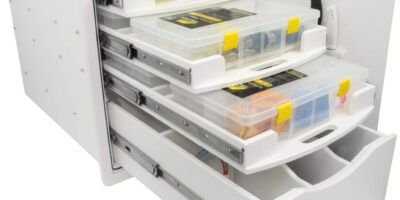How to Improve Your Angling Skills
How to Improve Your Angling Skills
Angling is both an art and a science. To improve, you need to understand the behaviors of fish and the environments they live in. Knowing the best gear to use and refining your techniques are also crucial.

Understand Fish Behavior
Different species have distinct behaviors. Observing their patterns helps you predict their movements and feeding times. Learn about their preferred habitats. Fish tend to gravitate towards areas with abundant food, adequate cover, and suitable temperature.
Research shows that fish are most active during dawn and dusk. These times are known as the “Golden Hours” in angling. Take advantage of this natural behavior by fishing early in the morning or late in the afternoon.
Choose the Right Equipment
Using the right gear can make a big difference. Start with a suitable rod and reel combo based on the type of fish you’re targeting. Spinning reels are versatile and beginner-friendly. Baitcasting reels offer more precision and power but require practice.
Match your line with your fishing conditions. Monofilament lines are stretchy and shock-resistant. Braided lines are robust and suitable for fishing in heavy cover. Fluorocarbon lines are nearly invisible underwater, making them excellent for clear water fishing.
Master Various Fishing Techniques
Experiment with different techniques. Each has its own set of benefits. Here’s a breakdown:
- Bait fishing: Using live or natural bait like worms or minnows. Great for beginners.
- Fly fishing: Using artificial flies to mimic insects. Requires skill and practice. Ideal for catching trout and salmon.
- Spinning: Casting and retrieving lures. Suitable for a wide range of fish species.
- Baitcasting: Offers greater accuracy and distance. Better suited for experienced anglers.
Learn to Read the Water
Recognize the signs in the water to locate fish. Look for structures such as submerged trees, rocks, or weed beds. These provide cover and attract fish. Pay attention to water currents. Fish often position themselves in areas where food is likely to drift by.
Keep an eye on water clarity and temperature. Fish in clear water are more cautious, so natural bait and light lines are effective. In muddy water, use bright lures that stand out.
Practice Casting Accuracy
Accurate casting is essential for placing your bait in the right spots. Practice makes perfect. Start by pitching and flipping in your backyard. Use a target like a bucket to improve your precision.
When on the water, pay attention to wind direction. It affects your casting distance and accuracy. Adjust your angle and strength accordingly. Practice sidearm casting to counter strong winds.
Patience and Persistence
Patience is a virtue in angling. It takes time to develop skills. Persistence pays off. Keep experimenting with different techniques and baits until you find what works best.
Learn to enjoy the process. Each trip is an opportunity to learn something new, regardless of the catch. Keep a fishing journal to record your observations and successes. This will help you identify patterns over time.
Join a Fishing Community
Connect with other anglers. Join local fishing clubs or online forums. Sharing experiences and tips can accelerate your learning. Attend workshops and tournaments to see experienced anglers in action.
Engage with mentors and learn from their expertise. They can offer valuable insights and shortcuts that would take years to discover on your own.
Stay Informed
Keep up with the latest trends and techniques in angling. Subscribe to fishing magazines or blogs. Watch instructional videos and follow reputable fishing channels on social media. Participate in webinars and read up on recent studies about fish behavior and ecosystem changes.
Understand local fishing regulations and conservation efforts. Respect catch limits and protected species regulations. This ensures sustainability and the future enjoyment of the sport.
Get Out There
All the knowledge in the world won’t improve your skills if you don’t put it into practice. Make it a point to fish regularly. The more time you spend on the water, the better you’ll get at reading fish behavior and perfecting your techniques.
Adapting to different environments challenges you to think creatively. Whether it’s a new species or a different body of water, every experience enhances your angling proficiency.
“`
Recommended Fishing Gear
Garmin GPSMAP 79s Marine GPS – $280.84
Rugged marine GPS handheld that floats in water.
Garmin inReach Mini 2 – $249.99
Compact satellite communicator for safety on the water.
As an Amazon Associate, we earn from qualifying purchases.



